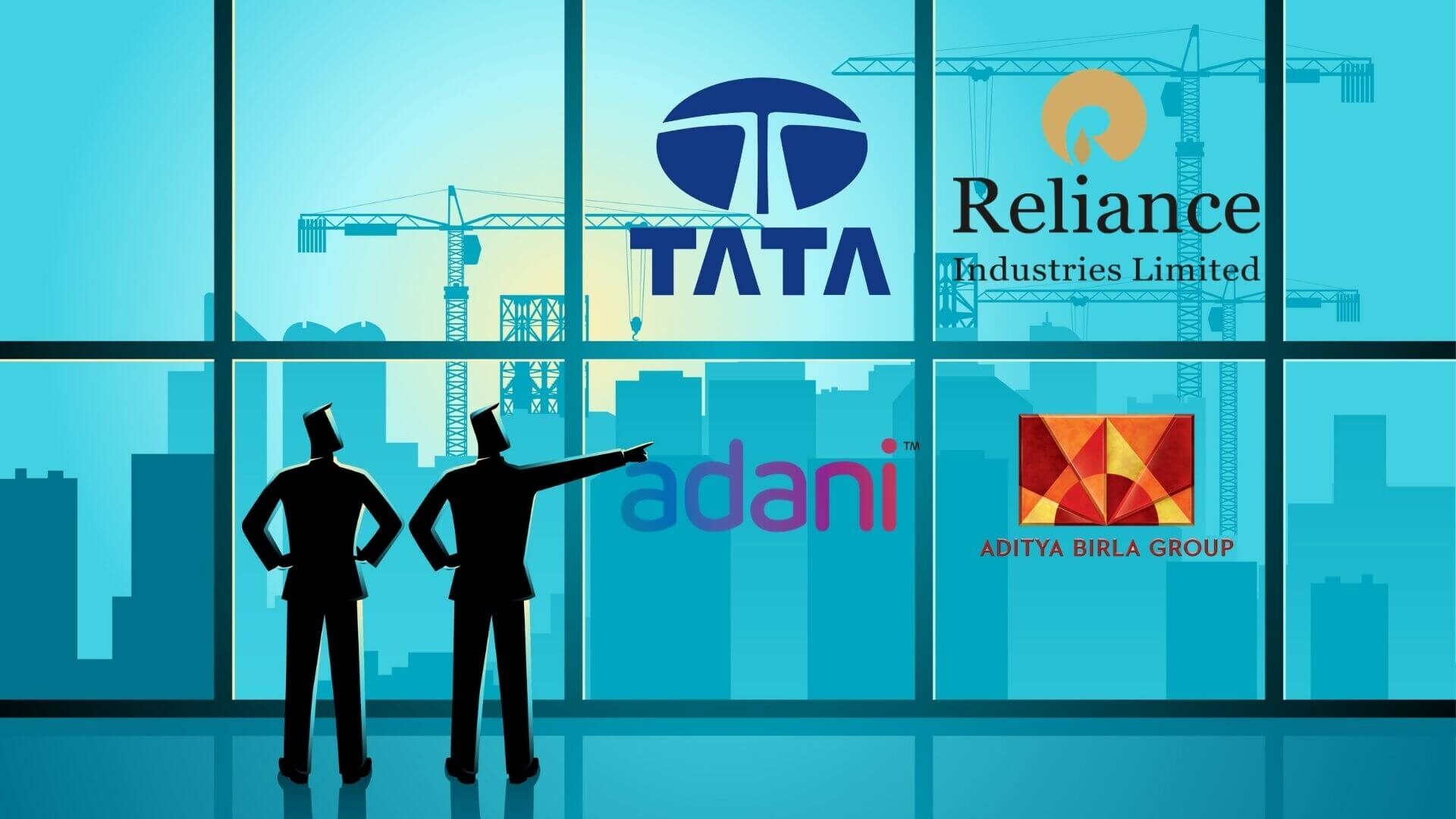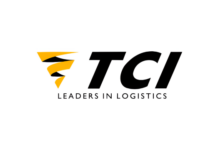India is home to many powerful business titans, titans who wield immense economic influence across diverse industries. These business powerhouses frequently operate through an intricate network of publicly traded subsidiaries, subsidiaries that draw capital and support from stakeholders worldwide. Have you pondered the manner by which these far-reaching commercial kingdoms control and coordinate their offspring businesses, strategic partnerships, and their numerous affiliated organizations? The key lies in their utilization of umbrella companies. Presented below is the list of the biggest holding companies in India.

Biggest Holding Companies in India
What is a Holding Company?
A holding company is a business entity that primarily holds a controlling interest in other companies, allowing it to influence their policy decisions significantly. This unique aspect of holding companies sets them apart, although the level of control over operational management can vary widely.
The definition of a holding company emphasizes its role in exerting control, often achieved by owning more than 50% of the equity stake in an investee company. However, control can also be exercised with smaller shareholdings through various mechanisms.
Holding companies typically generate revenue through dividends, interest, rent, and royalties. Often referred to as umbrella or parent companies, they are regarded as the crown jewels of their corporate groups due to their substantial equity interests in affiliated companies.
Here are some of the biggest holding companies in India.
#1 Tata Sons – Among the Most Significant Holding Companies in India
Tata Group is among the oldest and most successful business groups in India. It was established by entrepreneur and philanthropist Jamshedji Tata in 1868 as a trading enterprise primarily engaged in the opium and tea trade with Mongolia and China. Tata Sons was established as a trading enterprise in 1917, and engaged primarily in overseeing profits and structuring them into the right direction of the Tata Group,
Tata Sons is the principal investment holding company and promoter of the Tata Group. Arguably, this is the most important of the biggest holding companies in India. The company is the owner of the TATA brand name and its trademarks. Around 66% equity capital of the company is held by philanthropic trusts endowed by members of the Tata family. The biggest two of these trusts are the Sir Dorabji Tata Trust and Sir Ratan Tata Trust.
Tata Sons manages a portfolio of approximately 100 companies, with 14 of these listed on the stock exchange. As of 31 March 2024, the holding value in these listed companies exceeded INR 30,85,250 crore and includes well-known entities such as Tata Consultancy Services, Hemisphere Properties, Tata Chemicals, Tata Communications, Tata Consumer Products, Tata Elxsi, Tata Investment Corporation, Tata Power, Titan, Trent, Tata Teleservices, Tata Motors, Indian Hotels Company, and Tata Steel. Among these holdings, Tata Sons has the largest stake in Tata Consultancy Services at 71.74%, followed by a 40.16% stake in Tata Motors.
Read Also: Tata Group Companies: Comprehensive List of All Companies Under Tata Group
#2 Tata Investment Corporation – Another Tata Group Entry
Another holding company from the Tata group is Tata Investment Corporation, earlier known as The Investment Corporation of India. The company is primarily involved in investing in long-term investments such as equity shares and equity-related securities.
Tata Investment Corporation was promoted by Tata Sons in 1937 under the name of The Investment Corporation of India, which became a publicly held company in 1959. The aim of launching the company was to help set up and nurture small and medium-sized companies. The company invests in Tata and non-Tata companies.
As of 31 March 2024, the company has made investments in a total of 82 companies. Among these, 69 companies are quoted. The value of the quoted investments is INR 28,804.43 crore, while the total investment across all companies amounts to INR 30,952.11 crore.
The portfolio of the company consists of Tata Chemicals, Tata Consumer Products, Tata Elxsi, Tata Motors, Tata Steel, Tata Consultancy Services, and Trent. Among these companies, the company has the largest stake in Trent, worth INR 6,004 crore.
Read Also: Best Foreign MNC Stocks Listed in India
#3 Aditya Birla Capital – A Beacon Among the Largest Holding Companies From the House of Birla
Seth Shiv Narayan Birla laid the foundation stone for the House of Birla by initiating trading in cotton. In the early 20th century, his son Ghanshyam Das Birla took the legacy further and established industries in critical sectors such as textiles and fibre, aluminium, cement, and chemicals.
Aditya Birla Capital acts as the holding company for the financial services business of the Birla Group. As of 30 September 2024, Aditya Birla Capital manages aggregate assets under management of INR 5,00,000 crore with a consolidated lending book of INR 1,38,000 crore through its subsidiaries/JVs.
The portfolio of the company consists of Aditya Birla Finance, Aditya Birla Health Insurance, Aditya Birla Housing Finance, Aditya Birla Insurance Brokers, Aditya Birla Money, Aditya Birla Sun Life AMC, Aditya Birla Sun Life Insurance, Aditya Birla Sun Life Mutual Fund, Aditya Birla Sun Life Pension Management, and Aditya Birla Asset Reconstruction Company.
Read Also: Biggest Unlisted Companies in India
#4 Pilani Investment and Industries – A Major Player in India’s Biggest Holding Companies Landscape
Another company from the house of Birla, Pilani Investment and Industries Corporation, is a core investment company that mainly invests in Birla Group companies. The company is named after the place in Rajasthan from where the Birla clan originated.
As of 31 March 2024, Pilani Investment holds stakes in 10 quoted companies with an investment of INR 12,626.42 crore, including Aditya Birla Fashion, Century Textiles, Vodafone Idea, Jay Shree Tea and Industries, Kesoram Industries, Mangalam Cement, and Ultratech Cement, with the largest stake of 33.11% worth INR 4,094.70 crore in Century Textiles.
Read Also: Top Sunrise Sectors in India
#5 Bajaj Holdings and Investment – Hamara Bajaj in Largest Holding Companies
Bajaj Holdings and Investment is a part of India’s leading conglomerate, the Bajaj Group, founded by freedom fighter and philanthropist Jamnalal Bajaj in 1926. The group’s journey began with a sugar factory in Lakhimpur Kheri, Uttar Pradesh, which evolved into Bajaj Hindustan. In 1945, Bachraj Trading Corp. was established for the sale of imported two- and three-wheelers, which later became Bajaj Auto.
As part of the group’s restructuring exercise, Bajaj Holdings and Investment was demerged from Bajaj Auto, and all manufacturing operations were transferred to Bajaj Auto while strategic operations were transferred to Bajaj Finserv. All remaining businesses, assets, investments, and liabilities remained with the holding company which also holds over 30% stake in Bajaj Auto and Bajaj Finserv.
As of 31 March 2024, the value of the company’s equity investments stood at INR 1,96,629 crore. Bajaj Holdings and Investment’s portfolio includes Bajaj Electric, Bajaj Auto, Bajaj Hindustan Sugar, Bajel projects, Hercules Hoists, Maharashtra Scooters, Mukand, Padmanabh Alloys, and Polymers, and Tree House Education and Accessories, with the largest holding of 41.56% in Bajaj Finserv worth INR 743.82 crore.
Read Also: Top Bootstrapped Companies in India
#6 JSW Holdings – Steel and Beyond
Sajjan Jindal, son of industrialist O.P. Jindal, established the JSW Group in 1982 by acquiring a re-rolling mill from Piramal Steel, which he later renamed Jindal Iron and Steel Company (JISCO). This company eventually merged with Vijayanagar Steel (JVSL) to create JSW Steel.
JSW Group is recognized as one of India’s foremost business conglomerates, with operations across multiple sectors, including steel, energy, infrastructure, cement, and paints. The group has expanded its footprint internationally, operating in regions such as the United States, South America, and Africa.
JSW Holdings focuses primarily on investing in its subsidiary companies, maintaining a portfolio that includes both publicly traded and privately held firms.
Among unquoted companies, JSW Holdings has an 11.34% stake in Siddheshwari Tradex. In quoted companies, it holds six companies with a net worth of INR 15,475 crore, which includes Hexa Tradex, Jindal Steel and Power, Jindal Stainless, JSW Energy, JSW Steel, and Nalwa Sons Investments. Its largest holding is in JSW Steel standing at 7.42% worth INR 15,060 crore. In FY 2024, the company made a total investment of INR 19,638.04 crore.
Read Also: Bira 91 Unlisted Share Price
#7 Bengal and Assam Company – Controlling JK Group
The Bengal and Assam Company was established as Bengal and Assam Investors in 1947. Since its inception, it has engaged in the business of holding investments and other financial assets, mainly in JK Group companies.
The company holds strategic stakes in JK Tyre & Industries – 49.86%, (ceased to be a subsidiary during the reporting period), JK Lakshmi Cement – 44.31%, JK Paper – 47.00%, JK Agri Genetics – 67.42%, and Umang Dairies – 55.30%.
As of 22 November 2024, the company has a market cap of INR 10,560 crore, Bengal and Assam Company publicly held five companies with aggregate value exceeding INR 1,500 crore. The portfolio of the company includes JK Laxmi Cement, Udaipur Cement Works, Umang Dairies, and JK Tyre. Among these, they have the largest holding in JK Agri Genetics at 67.42%, worth INR 566.10 crore.
So this is all about the largest holding companies in India. We hope you liked this list. Please let us know your thoughts in the comments section below.
Also Read: IPOs with 500% Returns: Explore Best Performing IPOs
Latest Content From IPO Central
- How Many IPOs Have Withdrawn In India?
- Motilal Oswal Home Finance Q2 FY25 Performance
- The Exciting Upcoming IPOs in December 2024 You Can’t Miss!
- Eleven IPOs Next Week – Market Set to Witness Over INR 18,000 Cr Fundraising Action
- Vishal Mega Mart IPO Analysis
- Sai Life Sciences IPO Analysis
- Emerald Tyre IPO Allotment Today: What to Expect After 530.67X Subscription Surge
- Ullu Digital IPO – INR 135-150 Cr SME IPO to Launch by March 2025
- RBI’s NOD for Canara Robeco AMC IPO and Canara HSBC Life Insurance IPO
- Zepto Surpasses INR 1,000 Crore in Annualized Ad Revenue
- Dhanlaxmi Bank Rights Issue Dates, Price, Allotment, Entitlement

Conclusion
In conclusion, India’s biggest holding companies, such as Tata Sons, Pilani Investment and Industries, and Aditya Birla Capital, play a crucial role in the economy by managing extensive portfolios across various sectors. These companies not only exert significant influence over their subsidiaries but also contribute to the financial stability and growth of the industries they operate in, showcasing their importance as economic powerhouses.



































